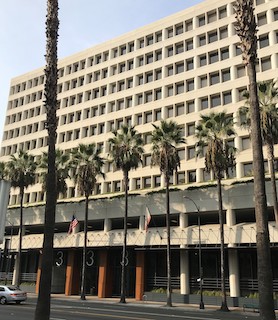Under Penal Code § 1170(d)(1), a trial court judge may recall a prisoner’s sentence at any time upon the recommendation of the CDCR and “resentence the defendant in the same manner as if they had not previously been sentenced, provided the new sentence, if any, is no greater than the initial sentence.” The CDCR, through the secretary of the Board of Parole Hearings, may communicate this recommendation in several ways.
The following case summary exemplifies what is not considered a recommendation for resentencing from the CDCR.
In 2006, Defendant Francisco Magana was convicted in Santa Clara County Superior Court of first degree murder (Penal Code § 187(a)) and possession of a firearm by a felon (former Penal Code § 12021(a)(1)). The jury also found that in the commission of the murder, defendant had personally and intentionally discharged a firearm, causing death, meaning his sentence would be enhanced by 25 years to life under Penal Code § 12022.53(d). The jury also found it true that Mr. Magana had served four prior prison terms, then causing him to face a one-year sentence enhancement under Penal Code § 667.5(b) for each prior prison term.
The judge sentenced Magana to an indeterminate prison term of fifty years to life, consecutive to a six-year determinate prison term.
Magana appealed the conviction and the sentence to the Sixth Appellate District on many grounds, but this article will narrow its focus to just sentencing issues.
 Court of Appeal Sixth Appellate District San Jose
Court of Appeal Sixth Appellate District San Jose
In 2007, the Sixth Appellate District found insufficient evidence to sustain the jury’s findings on two of the four prior prison term enhancements and ordered that the trial court strike the enhancements and either “retry those enhancements” or “modify the abstract of judgment to reflect their elimination.”
On remand, the trial court judge issued two new abstracts of judgment: one for the indeterminate term and one for the determinate term. The determinate abstract showed a four-year term consisting of two years for being a felon in possession of a firearm and two one-year terms for each prison prior.
The indeterminate abstract reflected a term of 25 years to life for the firearm use enhancement and a term of 50 years to life for the murder and listed two prison prior enhancements. The indeterminate abstract specified that the total term was 50 years to life consecutive to four years and that the two “prison priors” were being dismissed.
As the reader may appreciate, this was an unusual, if not incorrect, way of expressing the new sentence.
Accordingly, on August 16, 2019, the CDCR notified the trial court judge that the abstract of judgement “may be in error, or incomplete.” The letter from the CDCR noted that the indeterminate term reflected a term of 50 years to life for murder, not 25 years to life. The letter also noted that the two prior prison term enhancements were listed on each abstract, for “a total of four” prior prison terms, which conflicted with the Sixth Appellate District’s prior ruling that two of the prison prior terms were not proven. The letter then asked the trial court to determine whether “a correction is required.”
The trial court then set the matter on calendar and Mr. Magana filed a motion for a “sentence rehearing” under Penal Code § 1170(d)(1). Defendant suggested that instead of just correcting the abstract of judgement as the CDCR noted, the trial court should exercise its discretion to dismiss the firearm use enhancement under Senate Bill 620 and dismiss the two remaining prison prior enhancements under SB 136.
The People opposed Magana’s motion for resentencing, arguing that Penal Code § 1170(d)(1) was not applicable because the letter from the CDCR was not an invitation to recall and resentence, but merely a suggestion to correct a “technical error in the judgement.” The People also argued that Magana was not entitled to retroactive application of Senate Bill 620 because his sentence had been final for many years.
In a written order on May 26, 2020, the trial court declined to resentence defendant and found that no legal authority permitted a resentencing.
Magana then appealed the trial court’s ruling to the Sixth Appellate District again. The Sixth Appellate District denied the appeal, finding that the CDCR letter did not trigger 1170(d) resentencing. The court noted that in People v. Humphrey (2020) 44 Cal. App.5th 371, a similar situation arose. In that case, the CDCR also noted that “a correction may be required.”
The CDCR letter did not use the term “recall” or “resentencing.” The CDCR letter was intended to address a clerical error only. It only stated that the abstract of judgment “may be in error, or incomplete.” It made no reference to the court’s authority to recall the sentence under 1170(d)(1). Thus, the trial court was correct in denying the motion for resentencing.
The citation for the Sixth Appellate District Court ruling discussed above is People v. Francisco Magana (6th App. Dist., 2021) 63 Cal. App. 5th 1120, 278 Cal. Rptr. 3d 411.
For more information about resentencing in general, please click on the following articles:
 Court of Appeal Sixth Appellate District San Jose
Court of Appeal Sixth Appellate District San Jose